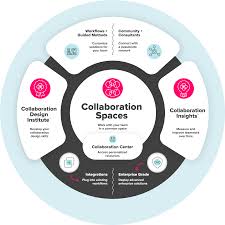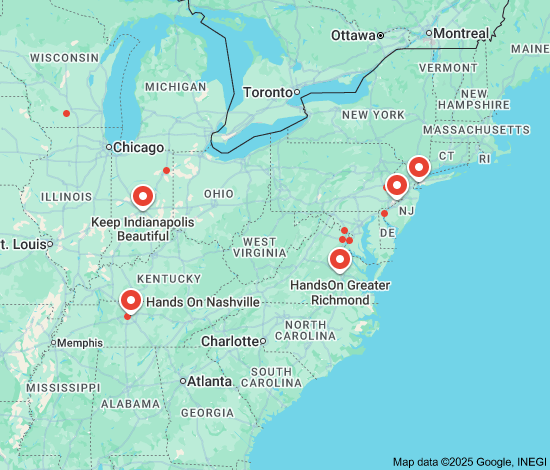The Impact of Discrimination on Individuals and Society
Discrimination is a pervasive issue that affects individuals and society as a whole. Whether based on race, gender, sexual orientation, religion, or other factors, discrimination can have far-reaching consequences that undermine the values of equality and justice.
At an individual level, discrimination can lead to feelings of isolation, low self-esteem, and mental health issues. When individuals are treated unfairly or denied opportunities because of who they are, it can have a profound impact on their well-being and sense of belonging.
Furthermore, discrimination perpetuates inequality and division within society. It creates barriers to social cohesion and prevents marginalized groups from fully participating in all aspects of life. This not only harms those directly affected by discrimination but also weakens the fabric of society as a whole.
Addressing discrimination requires a concerted effort from individuals, communities, and institutions. By promoting awareness, fostering inclusivity, and advocating for policies that protect against discrimination, we can work towards creating a more just and equitable society for all.
It is crucial that we recognize the harmful effects of discrimination and take proactive steps to combat it in all its forms. Only by standing together against discrimination can we build a future where everyone is treated with dignity and respect.
Understanding Discrimination: Key Questions and Answers
- What is discrimination?
- What are the different types of discrimination?
- How does discrimination impact individuals?
- What laws protect against discrimination?
- How can I report instances of discrimination?
- What are some examples of institutional discrimination?
- How can we combat discrimination in society?
What is discrimination?
Discrimination is the unjust or prejudicial treatment of individuals or groups based on certain characteristics such as race, gender, age, sexual orientation, religion, or disability. It involves treating someone differently and unfairly because of these attributes, often resulting in unequal opportunities or negative consequences for the affected individuals. Discrimination can manifest in various forms, including but not limited to harassment, exclusion, stereotypes, and unequal access to resources. Recognizing and addressing discrimination is essential to promoting equality and fostering a more inclusive and just society for all.
What are the different types of discrimination?
Discrimination can manifest in various forms, each targeting different aspects of an individual’s identity. Some common types of discrimination include racial discrimination, where individuals are treated unfavorably based on their race or ethnicity; gender discrimination, which involves unequal treatment based on one’s gender identity or expression; age discrimination, where individuals are unfairly judged or mistreated due to their age; and disability discrimination, which involves prejudice against individuals with physical or mental disabilities. Other forms of discrimination may include religious discrimination, sexual orientation discrimination, and socioeconomic discrimination. Recognizing and addressing these different types of discrimination is crucial in promoting equality and fostering a more inclusive society for all.
How does discrimination impact individuals?
Discrimination has a profound impact on individuals, affecting them both emotionally and psychologically. When individuals face discrimination based on their race, gender, sexual orientation, or other characteristics, it can lead to feelings of inadequacy, isolation, and diminished self-worth. The experience of being discriminated against can cause stress, anxiety, and even depression in some cases. Moreover, discrimination can limit opportunities for personal and professional growth, hindering individuals from reaching their full potential. It is essential to acknowledge the detrimental effects of discrimination on individuals and work towards creating a more inclusive and equitable society where everyone is valued and respected.
What laws protect against discrimination?
Various laws at the federal, state, and local levels protect individuals against discrimination in the United States. Some of the key federal laws include the Civil Rights Act of 1964, which prohibits discrimination based on race, color, religion, sex, or national origin; the Age Discrimination in Employment Act, which protects individuals aged 40 and older from age-based discrimination; and the Americans with Disabilities Act, which prohibits discrimination against individuals with disabilities in various aspects of public life. Additionally, state and local laws may provide further protections against discrimination based on additional characteristics such as sexual orientation or gender identity. It is important for individuals to be aware of their rights under these laws and to seek legal recourse if they believe they have been discriminated against.
How can I report instances of discrimination?
If you have experienced discrimination and wish to report instances of it, there are several avenues available to you. You can reach out to relevant authorities such as human rights commissions, anti-discrimination agencies, or legal organizations specializing in civil rights. Many workplaces and educational institutions also have procedures in place for reporting discrimination internally. Additionally, community organizations and advocacy groups may offer support and guidance on how to address discrimination effectively. It is important to document any incidents of discrimination and seek assistance from trusted resources to ensure that your concerns are heard and addressed appropriately.
What are some examples of institutional discrimination?
Institutional discrimination refers to systemic practices within organizations or institutions that result in unequal treatment or opportunities for certain groups based on characteristics such as race, gender, or socioeconomic status. Examples of institutional discrimination include hiring practices that favor one group over another, unequal access to educational resources based on students’ backgrounds, disparities in healthcare services provided to different demographics, and policies within criminal justice systems that disproportionately impact minority communities. These examples highlight how institutional discrimination can perpetuate inequality and hinder the advancement of marginalized groups within society.
How can we combat discrimination in society?
To combat discrimination in society, it is essential to promote awareness, foster inclusivity, and advocate for policies that protect against discrimination. Education plays a crucial role in challenging biases and stereotypes, fostering empathy, and promoting understanding among individuals. Creating safe spaces where people can share their experiences and perspectives can also help break down barriers and build bridges of solidarity. Additionally, advocating for laws and regulations that uphold the rights of marginalized groups and hold perpetrators of discrimination accountable is vital in creating a more just and equitable society for all. By working together to address discrimination at its roots and standing up against injustice, we can make meaningful strides towards a more inclusive and accepting world.




Leave a Reply